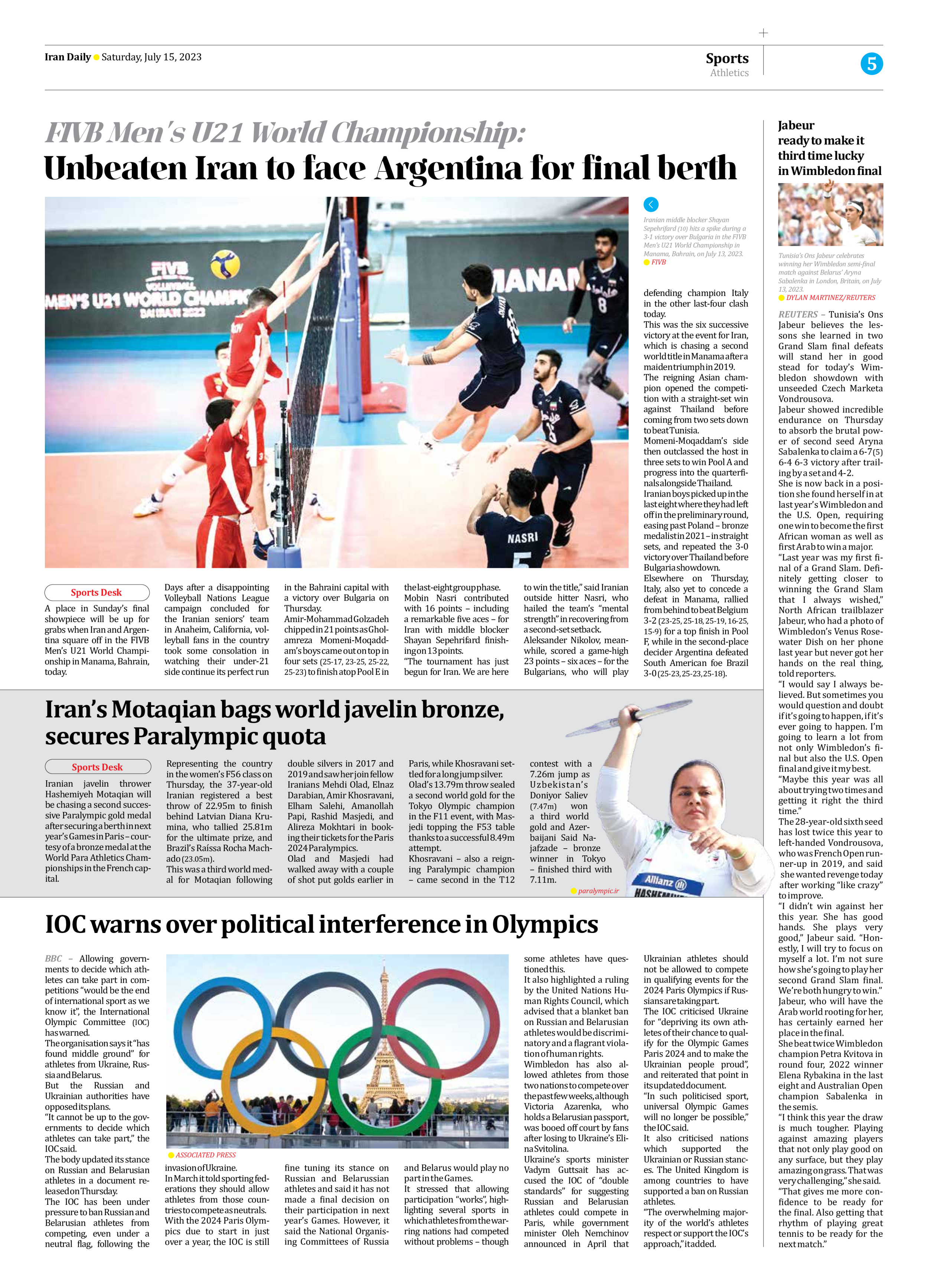
IOC warns over political interference in Olympics
BBC – Allowing governments to decide which athletes can take part in competitions “would be the end of international sport as we know it”, the International Olympic Committee (IOC) has warned.
The organisation says it “has found middle ground” for athletes from Ukraine, Russia and Belarus.
But the Russian and Ukrainian authorities have opposed its plans.
“It cannot be up to the governments to decide which athletes can take part,” the IOC said.
The body updated its stance on Russian and Belarusian athletes in a document released on Thursday.
The IOC has been under pressure to ban Russian and Belarusian athletes from competing, even under a neutral flag, following the invasion of Ukraine.
In March it told sporting federations they should allow athletes from those countries to compete as neutrals.
With the 2024 Paris Olympics due to start in just over a year, the IOC is still fine tuning its stance on Russian and Belarussian athletes and said it has not made a final decision on their participation in next year’s Games. However, it said the National Organising Committees of Russia and Belarus would play no part in the Games.
It stressed that allowing participation “works”, highlighting several sports in which athletes from the warring nations had competed without problems – though some athletes have questioned this.
It also highlighted a ruling by the United Nations Human Rights Council, which advised that a blanket ban on Russian and Belarusian athletes would be discriminatory and a flagrant violation of human rights.
Wimbledon has also allowed athletes from those two nations to compete over the past few weeks, although Victoria Azarenka, who holds a Belarusian passport, was booed off court by fans after losing to Ukraine’s Elina Svitolina.
Ukraine’s sports minister Vadym Guttsait has accused the IOC of “double standards” for suggesting Russian and Belarusian athletes could compete in Paris, while government minister Oleh Nemchinov announced in April that Ukrainian athletes should not be allowed to compete in qualifying events for the 2024 Paris Olympics if Russians are taking part.
The IOC criticised Ukraine for “depriving its own athletes of their chance to qualify for the Olympic Games Paris 2024 and to make the Ukrainian people proud”, and reiterated that point in its updated document.
“In such politicised sport, universal Olympic Games will no longer be possible,” the IOC said.
It also criticised nations which supported the Ukrainian or Russian stances. The United Kingdom is among countries to have supported a ban on Russian athletes.
“The overwhelming majority of the world’s athletes respect or support the IOC’s approach,” it added.







